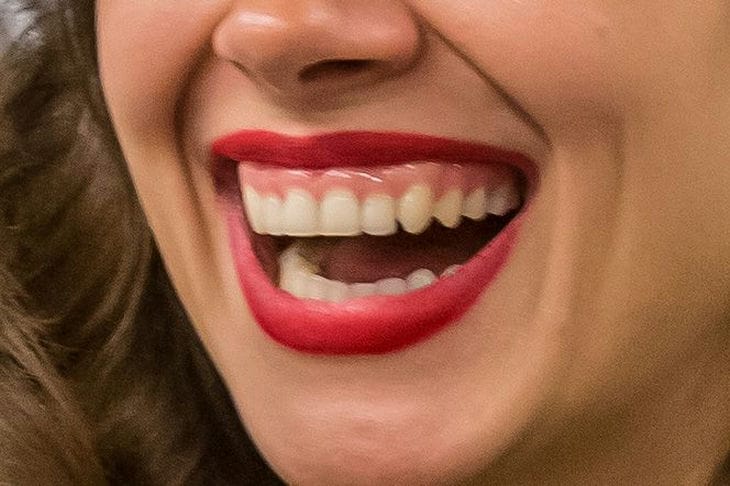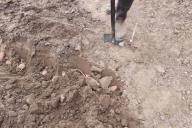Dental products are the new skin care.
Taking care of your teeth may not be as fun and sexy as trying out new cosmetics, but in the end, it's very beneficial for our health and beauty (and wallet).
We all know that we should brush our teeth twice a day, but the care doesn’t end there. So, what should we do next?
Do you also like a healthy, clean and snow-white smile? Or is it not about you, because you think it is better not to show off your teeth?
The foundation for proper dental care begins every day in your bathroom.

How to brush your teeth properly
Brushing your teeth doesn't require superpowers, but we can make mistakes in the process. You need to brush your teeth twice a day, especially in the evening.
For cleaning, use soft brushes with evenly cut fibers. Which toothbrush to choose – manual or electric, you decide for yourself.
How to really clean your teeth well, and not just "dig" with the brush? You need to make more circular or vibration movements with the brush. Make sure that the entire surface of the teeth is cleaned, ideally, the head of the brush always reaches the gums during cleaning.
Brush your teeth, the TV can wait
You probably do this too: watch TV, prepare things for the next day, and do similar things while brushing your teeth. But it's not a habit your dentist or dental hygienist will praise you for.
When cleaning under these conditions, you may miss certain areas or not clean them thoroughly.
Gum disease and tooth decay occur quickly, so you need to focus on brushing your teeth. If we can eat, sleep, or walk in the woods consciously and responsibly, we can brush our teeth consciously.
When you have a problem...
Are we making another mistake in our oral care that could result in serious dental problems and sky-high dental bills?
Unfortunately, we still come across the opinion that gum inflammation or periodontal disease can be treated independently with the help of over-the-counter products.
In fact, this is not true. If you are concerned about bleeding gums, tartar buildup, loose teeth, or bad breath, make an appointment with your dentist or oral hygienist.
See a dentist if the necks of your teeth are exposed and sensitive. There are several reasons for this condition, including inflammatory processes. You cannot solve this problem on your own at home.
Tips for choosing an interdental brush
Another common misconception is that we choose the size of interdental brushes ourselves and with absolute confidence. When you choose a toothbrush yourself, its size may not meet your needs.
An interdental brush that is too small will not be able to clean the spaces between teeth properly, while one that is too large can damage the clear or tooth enamel.
Consult your oral hygienist or dentist to help you choose the right interdental cleaning products.
When teeth are crowded, especially in the front parts of the jaw, we often reach for dental floss.
But it is worth having several different sizes of interdental brushes, since one size may not be enough. Do not choose more than three sizes of brushes, so as not to discourage the desire to brush.
Intuitive cleaning
Cleaning between teeth is a fairly intuitive process, so no one gets instructions with pictures on where and what kind of interdental cleaner to use.
Always try to use an interdental brush that is small enough to feel like you are cleaning the adjacent surfaces of your teeth when you insert it. If you don't feel that way, the brush is too small.
First to a specialist, then home care
Have you decided to start using interdental aids regularly, like you promise yourself every time you leave the dentist's office? First, make an appointment for oral hygiene.
Effective home care can only begin when there is no tartar or plaque in the interdental spaces, which cannot be removed independently at home. Oral hygiene is not a cosmetic procedure, but a therapeutic process.
The main investment is the brush
Ideal teeth cleaning always involves manual work, that is, using a brush and interdental cleaning aids.
Everything else can only make this process more enjoyable. An irrigator can be a great helper when cleaning bridges or a finishing touch after cleaning interdental spaces. It does not replace the main cleaning products.
Mouthwash is a kind of deodorant for the oral cavity. It will help you feel good and freshen your breath.
In some cases, your dentist may recommend a mouth rinse to speed up healing, but these alone don't make much difference.
Instead, invest in basic cleaning tools like toothbrushes and interdental aids. Do you know how to properly clean your teeth and interdental spaces?
Try making this part of your regular evening routine. A few extra minutes and your teeth will thank you.
Earlier, a cosmetologist told us how to keep your skin beautiful and healthy in winter.








